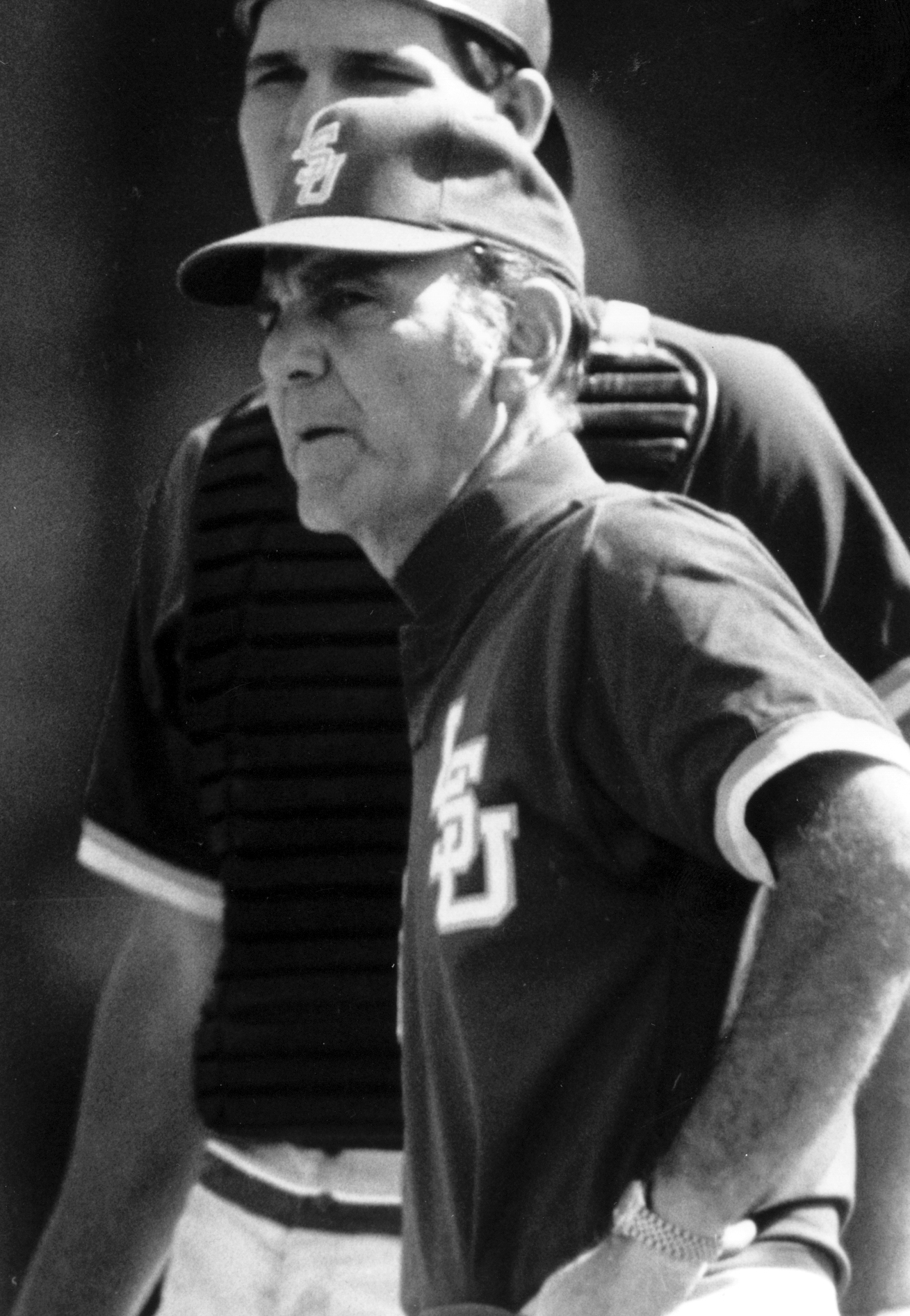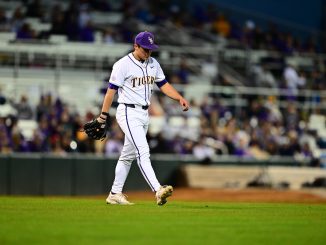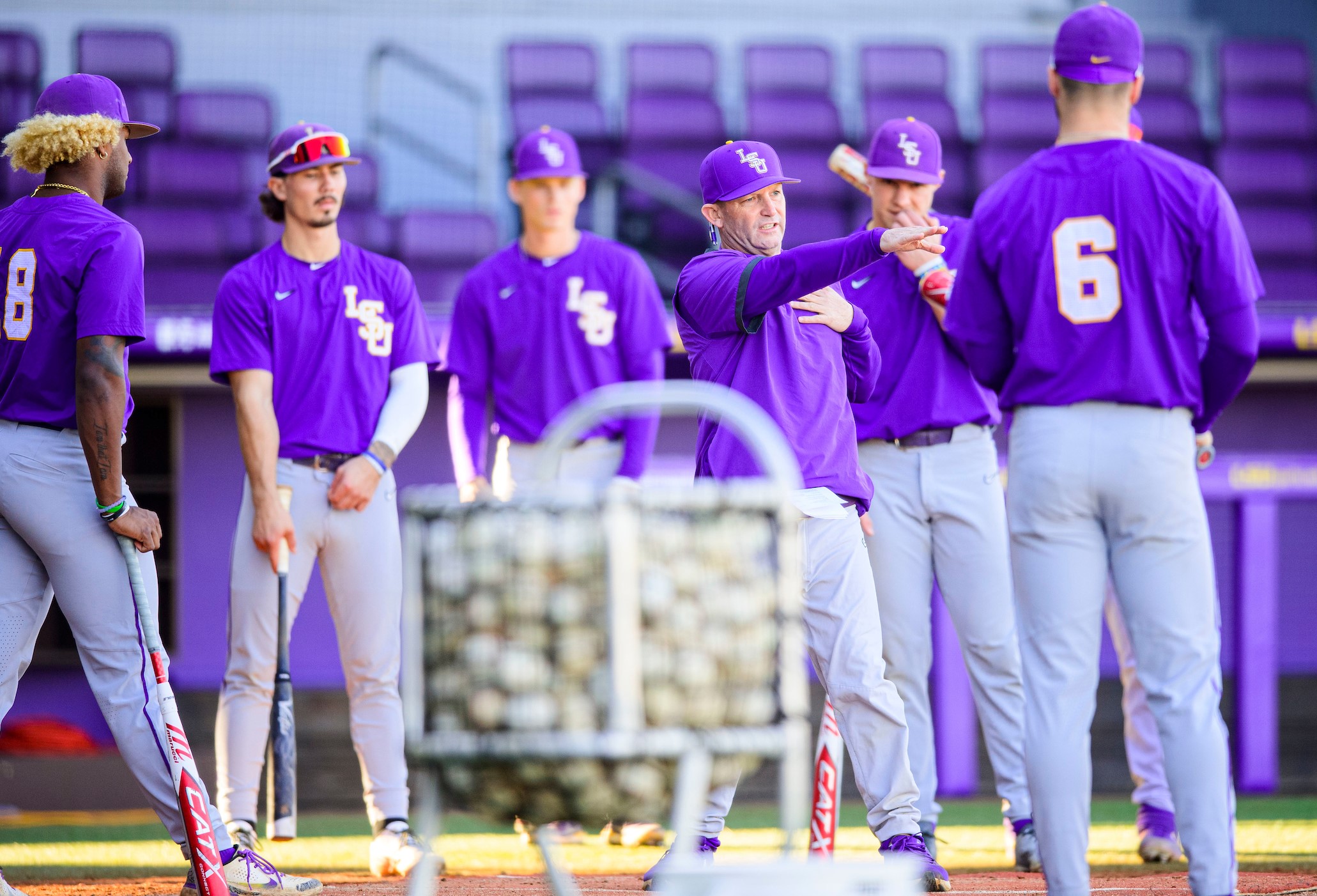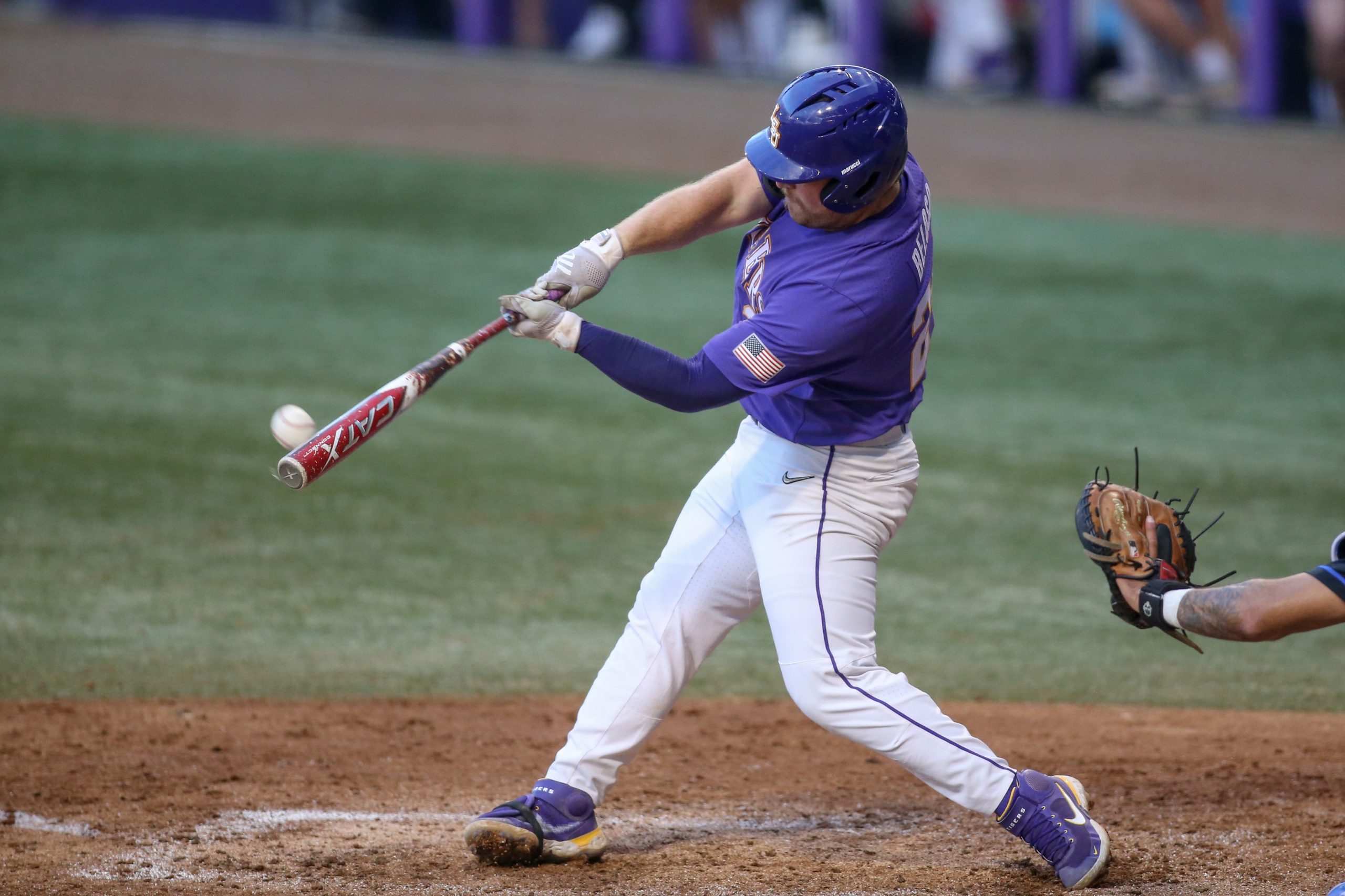
Editor’s note: In honor of former LSU baseball coach and athletic director Skip Bertman’s 82nd birthday on May 23, freelance writer Jim Mashek wrote a four-part series of the formative years of Bertman’s eventual five-time national champions dynasty. Mashek covered LSU baseball for the Morning Advocate in Baton Rouge from 1985 until 1989 and as a freelancer in 1990. This is Part 1.
By Jim Mashek
They stood outside the interview tent quietly talking among themselves.
LSU catcher Rob Leary, shortstop Jeff Reboulet, third baseman Jeff Yurtin and second baseman Burke Broussard were anguishing over the Tigers’ lackluster season-ending loss in the 1985 NCAA Central Regional in Austin, Texas.
Two straight defeats to cut short a 41-14 year in Skip Bertman’s second season as head coach featured a 4-3 losers-go-home loss to Lamar. The Tigers blew a 3-0 seventh inning lead in a sloppy game featuring four LSU errors.
“Reb (Reboulet), Burke, Yurt (Yurtin) and I were down there by the right-field line, right after doing the press conference,” Leary said. “We were (ticked off). We were all juniors and we knew we were coming back for our senior year.
“We looked each other in the eye and said, `Nothing like this is ever gonna happen again, not while we’re playing at LSU.’”
Nothing like that ever happened again at LSU, not in Bertman’s 18 seasons leading the Tigers from 1984-2001 after he came to Baton Rouge where he was a University of Miami assistant under the legendary Ron Fraser.
“When (LSU athletic director) Bob Brodhead reached me on the phone, I was pretty comfortable at Miami,” said Bertman, who won the first of his five national titles in 1991 in his eighth LSU season and on his fifth trip to the CWS with the Tigers. “I called my wife, Sandy, and told her I was going to visit LSU and Baton Rouge. I was 44 years old, and Ron Fraser had once been up for the Miami AD job. When he decided to stay in coaching, the LSU job was intriguing.
“Naturally, I made a lot of phone calls to people like (Mississippi State coach) Ron Polk, some coaches in Florida, Georgia. Not everyone was really sure about LSU.”
Bertman accepted LSU’s offer anyway, and the rest is college baseball history.S
When Bertman arrived at LSU, the Tigers had won just five SEC championships. They also had made just one NCAA tournament appearance in their then-88-year baseball history, which came in 1975 when the late Jim Smith’s Tigers squad won the SEC title.
There hadn’t been a true financial commitment to baseball from the LSU administration. For instance, Smith had doubled as the Tigers’ football equipment manager for years, which meant the baseball team had limited fall workouts.
Also, LSU played its home games in Alex Box Stadium, a relic that opened in 1938 which needed a facelift for which there were no funds.
Bertman knew the best way to raise money was to win games and make sure fans had a good experience. He borrowed some promotional ideas from his old boss Fraser, and he hustled to get people in the stands.
“We had to do a lot of promotions, things like that, to get people to ballpark,” Bertman said. “We had the boys give out schedules in their uniforms, at basketball games, and we set up the Coaches Committee with people like Richard Lipsey and Wally McMakin, who was on the 1975 LSU team. We had to get a diaper-changing table, for the men’s and women’s restrooms. Spruce up the stadium. Things that others might overlook.
“The saying was, `If Mom doesn’t come to the game, nobody’s coming.’”
On the field, Bertman implemented a demanding offseason conditioning program, plus a more intense approach to fall baseball.
Since NCAA rules on practice time allowed were more relaxed in those days, Bertman often had his team meet at Alex Box for a two-mile run before they went to their morning classes. Sometimes, practices in the fall approached three, even four hours. Leary said the players just wanted to prove themselves the following spring.
“We were grinders,” Leary said.
By his third season in 1986, Bertman had the Tigers headed to their first College World Series in Omaha after winning the SEC with a 22-5 record. LSU won all nine of its league series and started the year winning 21 of its first 22 games.
After the aforementioned two losses and out in 1985 in the Tigers’ first of 16 NCAA tournament appearances under Bertman, he had assembled a capable and determined team for its first CWS run.
He primarily went with junior college position players, like Reboulet, Leary and Yurtin, and he landed Shreveport slugger Albert Belle in recruiting. Belle was known as Joey in those days, and he became the Tigers’ starting right fielder immediately.
The Tigers were intent on putting the Austin disaster behind them.
The Tigers went 3-0 in the ’86 SEC tournament, and then returned to Alex Box for NCAA regional play. LSU reached the championship round and would get two opportunities to defeat intrastate rival Tulane, the No. 2 seed, for the CWS berth.
The game was tied at 6 in the bottom of the eighth inning on a Sunday evening when heavy thunderstorms forced officials to delay the game until lunchtime the next day. Assistant head coach Ray “Smoke” Laval commissioned a helicopter to help dry the field.
LSU scratched out a run on Reboulet’s infield hit, scoring Rob Hartwig from third, before the Tigers’ Stan Loewer retired the Green Wave in order, holding on for a 7-6 victory.
The Tigers arrived in Omaha a few days later but looked like a distracted team in their first CWS game, a 4-3 loss to Loyola-Marymount. Bertman’s bunch bounced back to eliminate Maine 8-4 in a losers’ bracket game before falling to Miami, again by a 4-3 score, to finish the season 55-14.
“We were really competitive, even if we lost,” Bertman said.




Be the first to comment